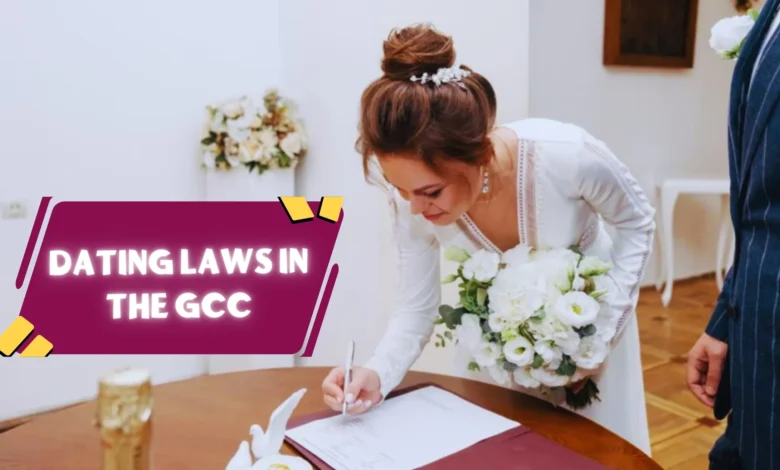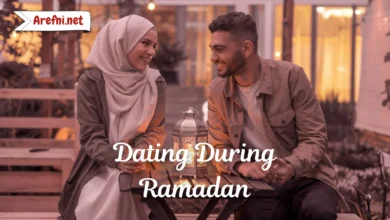Dating Laws in the GCC
What’s Allowed and What’s Forbidden in 2025

Dating in the Gulf Cooperation Council (GCC) countries Saudi Arabia, the UAE, Qatar, Kuwait, Oman, and Bahrain comes with a unique set of legal and cultural considerations. Unlike Western nations, where dating is largely unrestricted, GCC nations enforce laws based on Islamic Sharia principles and local customs.
With rapid modernization and shifting social attitudes, some rules have relaxed, particularly in cosmopolitan cities like Dubai and Riyadh. However, travelers, expats, and locals must still navigate strict regulations to avoid legal trouble.
This guide explores dating laws across the GCC, highlighting what’s permitted, what’s prohibited, and how couples can date safely within legal boundaries.
1. Dating Laws in Saudi Arabia: The Strictest in the GCC
Public Behavior & Gender Mixing
-
Unmarried couples cannot live together (enforced less strictly for expats in compounds).
-
Gender segregation in most public spaces (restaurants, cafes, and parks).
-
Flirting or public displays of affection (PDA) can lead to harassment charges.
Online Dating & Social Media
-
Dating apps (Tinder, Bumble) are technically banned but widely used via VPNs.
-
Meeting someone online carries risks scams and undercover morality police exist.
Legal Consequences
-
Extramarital relationships (zina) are punishable by lashes, imprisonment, or deportation.
-
“Morality police” (Haia) still monitor public spaces, though their powers were reduced in 2022.
Key Takeaway: While Saudi Arabia has relaxed some social restrictions (e.g., allowing gender-mixed events), dating remains highly regulated.
2. Dating in the UAE: More Liberal but Still Restricted
Dubai vs. Abu Dhabi: Different Approaches
-
Dubai is the most lenient, with dating tolerated in private.
-
Abu Dhabi and Sharjah enforce stricter Islamic laws.
Laws on Cohabitation & Relationships
-
Unmarried couples can now legally live together (2020 law change).
-
PDA (kissing, hugging) is illegal in public can result in fines or jail.
-
Sex outside marriage is still a crime, though rarely prosecuted between consenting adults in private.
Online Dating & Nightlife Scene
-
Dating apps (Tinder, Bumble) work without VPNs but are monitored.
-
Hotel bars and clubs are safe spaces for dating (alcohol licenses required).
The UAE is more open than Saudi Arabia, but couples should still avoid public affection and be discreet.
3. Qatar: Conservative but Evolving
Public Behavior & Social Restrictions
-
Unmarried couples cannot share hotel rooms (hotels may ask for marriage certificates).
-
PDA is illegal, including holding hands (enforcement varies).
Dating Apps & Social Life
-
Tinder and Bumble work but are discouraged.
-
Expat communities use private events for socializing.
Legal Risks
-
Pregnancy outside marriage can lead to arrest.
-
LGBTQ+ relationships are criminalized.
Qatar allows some social mixing but remains conservative discretion is essential.
4. Kuwait & Bahrain: Moderate but Unpredictable
Kuwait’s Dating Scene
-
Dating is tolerated in private but illegal in public.
-
Hotels may deny unmarried couples.
Bahrain: The Most Liberal GCC Country
-
No laws against dating, but conservative norms persist.
-
Alcohol is legal, and nightlife is vibrant.
Bahrain is the safest GCC country for dating, while Kuwait remains restrictive.
5. Oman: Traditional with Limited Flexibility
-
Dating is frowned upon, and PDA is banned.
-
Marriage certificates may be required for hotel stays.
How to Date Safely in the GCC
-
Use dating apps discreetly (avoid explicit chats).
-
Stay in private spaces (avoid PDA in public).
-
Respect local customs to avoid legal trouble.
While GCC dating laws are strict, expats and locals navigate them daily. Understanding the rules ensures a safe and enjoyable dating experience.
As Gulf nations continue to modernize driven by tourism, expat communities, and economic diversification dating norms may gradually evolve. Saudi Arabia’s recent social reforms, such as reducing the power of the morality police, suggest a slow but noticeable shift. However, Islamic law remains the foundation of these societies, meaning that any changes will likely be measured and deliberate.
For now, those seeking romance in the GCC must navigate a delicate landscape where tradition and modernity intersect. By staying informed and respectful, couples can enjoy meaningful connections while remaining within legal and cultural boundaries.





